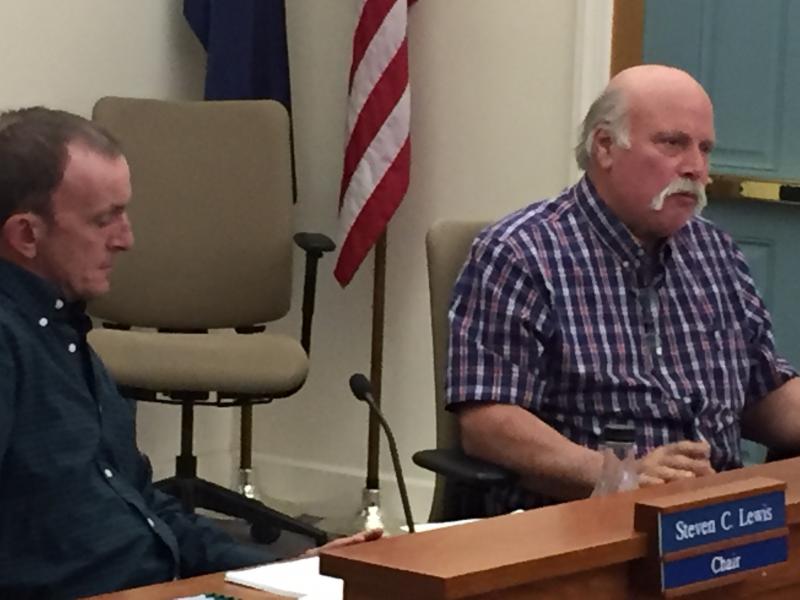Selectmen ask Mills to ease COVID-19 restrictions on rural towns
Boothbay selectmen are a sending a letter to Gov. Janet Mills asking her to reconsider Maine’s strategy combating health threats from COVID-19. On June 10, the selectmen held their first public board meeting since the governor’s state of emergency declaration in mid-March. One selectman urged his fellow board members to ask Mills to ease pandemic-related health measures in an attempt to safely reopen the suffering local economy.
Selectman Mike Tomacelli shared research showing 10 Maine rural counties had a relatively small number of COVID-19 cases, hospitalizations and deaths. Tomacelli and Town Manager Dan Bryer shared a draft letter intended to encourage Mills to relax regulations in the state’s rural counties to save businesses from further devastation due to the pandemic. “I’m seeing a lack of tourism locally, and it started me wondering if we are being more restrictive than we have to be,” Tomacelli said.
A pass by a local campground began Tomacelli wondering if the state of emergency was too restrictive on rural Maine businesses. Tomacelli drove by an empty Shore Hills Campground which he described as being at 75% capacity this time of year. This led him to examine the number of COVID-19 cases, hospitalizations and deaths in Lincoln and five other coastal counties (Sagadahoc, Knox, Waldo, Washington and Hancock). In these counties, Tomacelli tabulated 84 cases, 10 hospitalizations and two deaths. He also checked on COVID-19 cases in four other western Maine counties (Oxford, Franklin, Piscataquis and Somerset). These counties accounted for 91 cases, three hospitalizations and one death. “Three deaths total. I’m hoping for sending a letter to the governor asking her to look at these numbers,” he said. “Granted, science is involved, but statistics also tell the story. Maybe, there is another way so we can bring businesses back a few weeks earlier.”
Overall, selectmen supported the proposal. They directed Tomacelli and Bryer to send Mills a letter and email urging her to take a less restrictive approach to the pandemic in rural counties.
In other action, Bryer reported he is taking a “phased-in approach” toward reopening the municipal building. The door remains locked during business hours requiring residents to make an appointment to see municipal staff. “We have three slots available on a sign-up sheet, and if we opened the office, I don't think we could fit more than three people in the lobby with social distancing,” Bryer said. “Of course, if someone needs assistance we’ll do whatever we can for them. But for now, I’m putting the health of the public and staff, first.”
The pandemic has also resulted in a venue change for Boothbay’s municipal and state’s primary elections. On July 14, the old Town Hall at Boothbay Railway Village will host the 8 a.m. to 8 p.m. balloting. Bryer reported state election regulations for the number of voting booths along with social distancing required a larger space than the municipal building. An examination of the Town Hall showed it had enough space. “We checked the logistics last week and will do so again this week. The building has plenty of space. It’s handicapped accessible, and we may rent a tent to keep voters in the shade if it’s a warm day,” Bryer said.
Selectmen accepted Affinity Lighting’s bid to replace 179 street lights with LEDs (light emitting diodes). The Dover, New Hampshire firm was one of two bidders. Affinity had a slightly higher bid of $85,317 to replace the street lights with a network-controlled system. The board voted 4-1 to accept Affinity’s bid. “I really like they use 100% veterans to manufacture these lights. I think that’s huge and justifies what little extra we pay,” Selectman Steve Lewis said. Town officials reported the LEDs would likely save $22,000 per year in electricity costs.
The only dissenting vote came from Selectman Desiree Scorcia. She wanted to accept Affinity’s bid which didn’t include the network system. “I don’t really think it’s worth the extra couple thousand dollars’ cost,” Scorcia said.
Selectmen also held seven public hearings for restaurant and liquor license renewals and wharves and wiers applications. All seven were unanimously approved. The four wharves and wiers applications received planning board approval last month. Merrill and Maria Liteplo of 30 Ridge Road received approval ti construct and maintain a 3-foot by 40-foot ramp leading to two floats which are 12-foot by 24-foot and located below the mean high water mark, and rebuild an 80-foot by 4-foot pier. Elizabeth Bengis of 30 Edgewater Way received approval to construct and maintain a 6-foot by 60-foot pier with a 3-foot by 36-foot ramp and add two 10-foot by 20-foot floats.
Bradford Collins of 57 Delano Drive received approval for extending a 4-foot by 15-foot pier and adding two 12-foot by 24-foot floats. Peter Branch and Paula Carreiro of 5 Bufflehead Way received approval to construct and maintain a 6-foot by 6-foot pier with a 3-foot by 30-foot ramp, and a 10-foot by 10-foot float.
Selectmen meet next at 7 p.m. Wednesday, June 24 in the municipal building’s conference room.

























.png)
.png)

